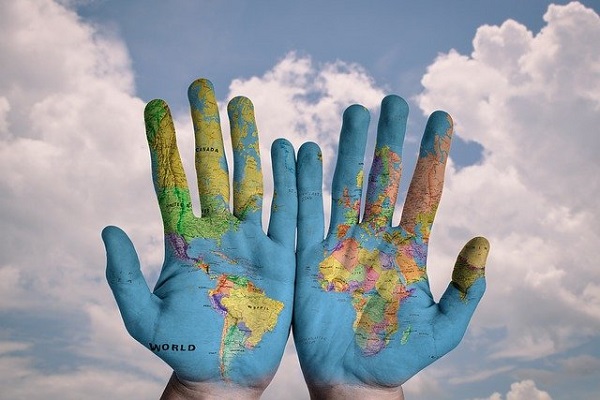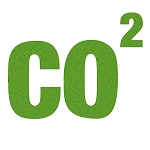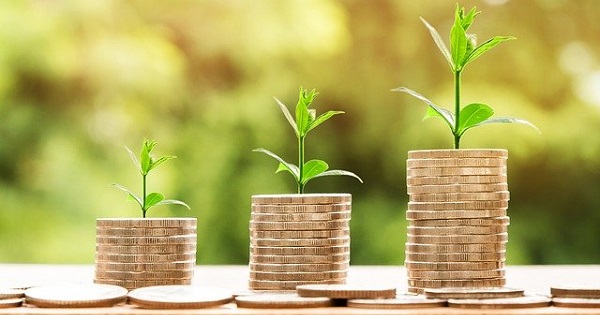‘Uniting the world to tackle climate change.’*

Between October 31–November 12, the EU and 196 countries will come together in Glasgow, Scotland, to tackle climate change. With the presidency passing to the UK for the 26th climate talks conference, they aim to inspire climate action and accelerate action.*
With the initial 2020 date for COP26 canceled due to Covid-19, all eyes turn to the rescheduled conference. As it nears, we explore the frequently asked questions, discovering what COP26 is and how it affects us all.
So, what does it mean?
COP, which stands for Conference of the Parties, signifies the 1994 United Nations Framework Convention on Climate Change (UNFCCC) treaty agreement between 197 parties, where all parties agree to meet annually to discuss and action climate change – the UN’s annual climate change conference. COP26 represents the 26th edition of these discussions and follows COP25, held in Madrid in 2019. The talks are among the world’s largest international meetings, and the UK, in partnership with Italy, take the presidency over the 2021 talks.

What is climate change?
Climate change is the persisting change in global temperatures and weather conditions. Brought on by the release of carbon dioxide and greenhouse gases, climate change occurs when global temperatures rise, forcing shifts in weather patterns.
What happens during COP?
COP talks split into two zones: the Blue Zone and the Green Zone.
The Green Zone exists for the general public and hosts various events, exhibitions, activities, and demonstrations around the subject of climate change.*
The Blue Zone exists for national delegations, organizations, or agencies related to the United Nations, non-profit observers, or any persons registered with working towards the United Nations Framework Convention on Climate Change (UNFCCC).*
COP26 represents the climax of climate events organized by the UK during their presidency, starting with The Climate Ambition Summit on December 12, 2020.*
Who will be there?
World leaders, negotiators, and government delegates will attend the conference, alongside volunteers and representatives from organizations, businesses, the media, and non-profits.
What are the goals?
Overall, tackling climate change is the goal of COP26. However, this goal splits into objectives and phases:

- To achieve global net-zero by the middle of the century,
- Hold temperature rises to 1.5 degrees,
- Protect natural habitats and communities,
- Mobilize the finance required to achieve the goals,
- Unite to face the challenges of climate change.*
Why is this conference so important?
Compared to previous COP conferences, COP26 has a resounding urgency. Not only has climate change swayed from a fringe subject to a topic of high, global importance, but the 26th edition of the conference will witness the review and refinement of the Paris Agreement.
What is the Paris Agreement?
Agreed in 2015 at the COP21 summit in Paris, the Paris Agreement oversaw 191 parties enter into a legally binding agreement to tackle climate change. Paris Agreement, similar to COP26, aims to reduce greenhouse gases globally, limit the temperature rise to 1.5 degrees and mobilize finance to countries affected by climate change.*
As part of the agreement, all participating countries agreed to Nationally Determined Contributions (NDCs), which implemented each country’s commitment to enact their national climate plans earlier.*

Why does it matter? How does it affect me?
Climate change affects everyone. If the global temperature rises higher than an additional 1.5 degrees, experts predict severe impacts, ranging from melting ice caps to exposure to deadly heat.
By preventing global temperature rises from surpassing an additional 1.5 degrees, although there will still be negative impacts, the severity of such will be less critical and would present a lower risk of serious weather events, shortages, and animal extinction.*
What next?
After the COP26 summit, commitment to tackling climate change will extend to further ambitious plans to rectify and negate the negative impacts of emissions.
With speakers from the University of Oxford, People, Planet Africa, and BBC Radio, scientists, activists, and policymakers are uniting for an online event post COP26 to analyze COP26 discussions, country commitments, policy agreements, climate change challenges, and other topics. A free event, the After COP26, what next? panel’s main goal will be to assess the COP26 conference, its failings, successes, and the plan moving forward.
As the COP conferences are annual, and the presidency switches between regions yearly, Egypt, as it stands, will hold the presidency over COP27.*
Resources
References
*https://ukcop26.org/
*https://ukcop26.org/
*https://ukcop26.org/wp-content/uploads/2021/07/COP26-Explained.pdf
*https://ukcop26.org/wp-content/uploads/2021/07/COP26-Explained.pdf
*https://ukcop26.org/wp-content/uploads/2021/07/COP26-Explained.pdf
*https://ukcop26.org/wp-content/uploads/2021/07/COP26-Explained.pdf
*https://ukcop26.org/cop26-goals/
*https://www.un.org/en/climatechange/paris-agreement
*https://ukcop26.org/uk-presidency/what-is-a-cop/
*https://ukcop26.org/wp-content/uploads/2021/07/COP26-Explained.pdf
*https://www.reuters.com/world/africa/egypt-selected-nominee-host-cop27-climate-talks-us-envoy-kerry-2021-10-02/




